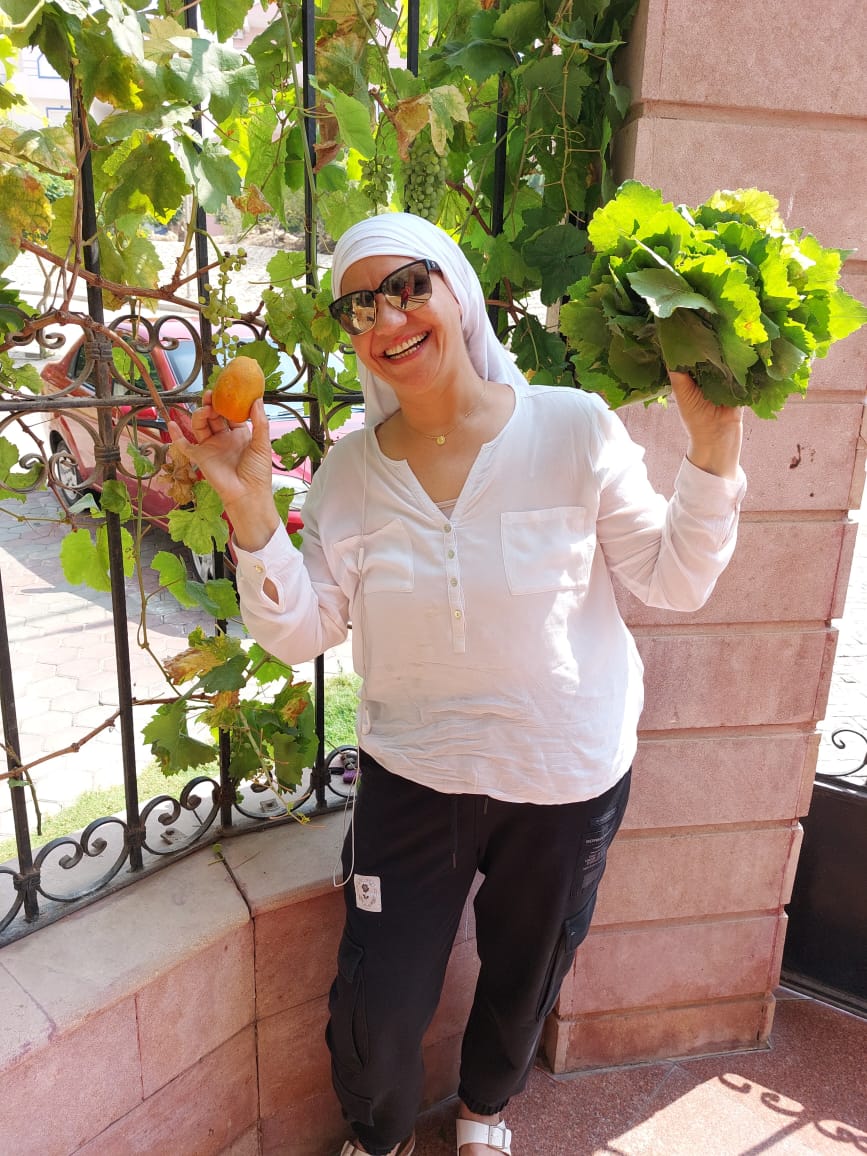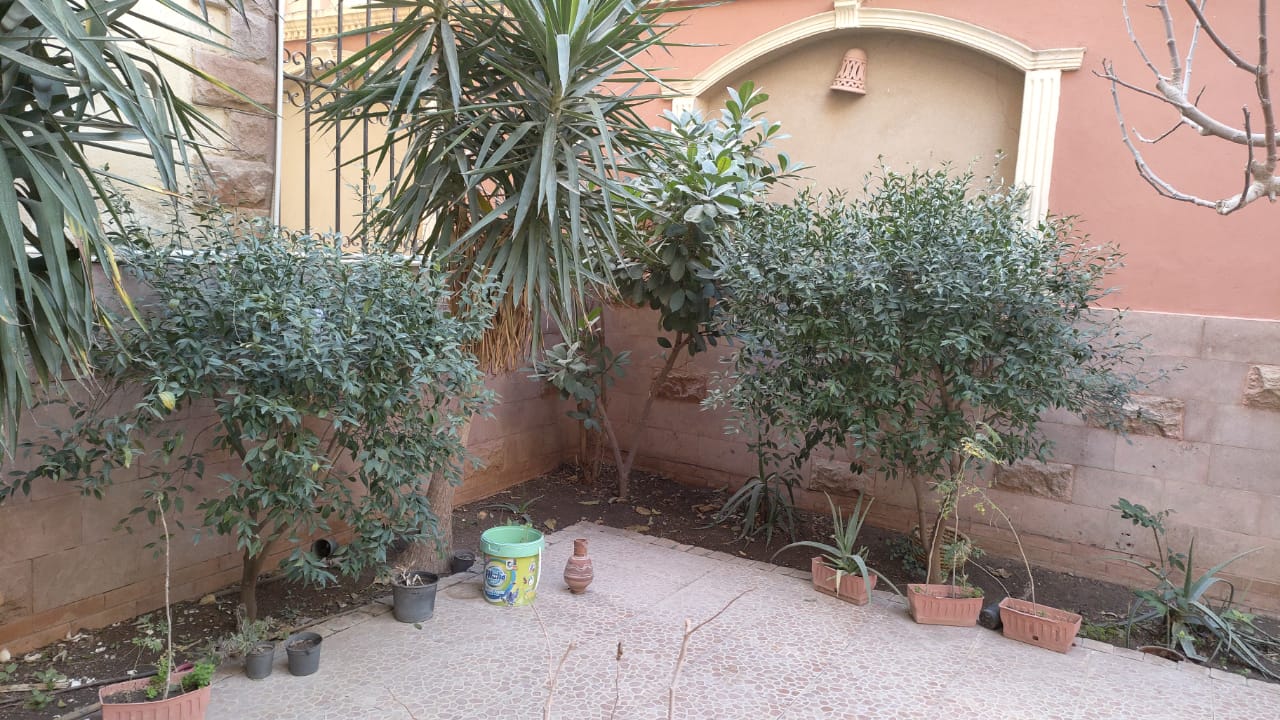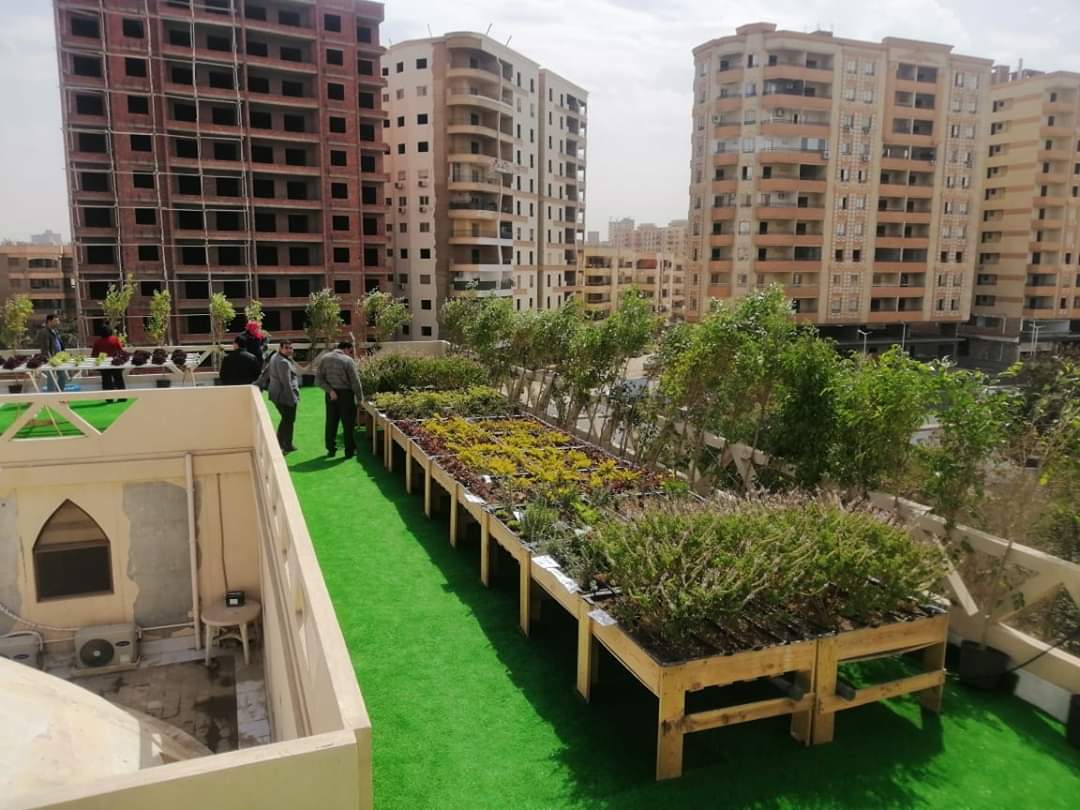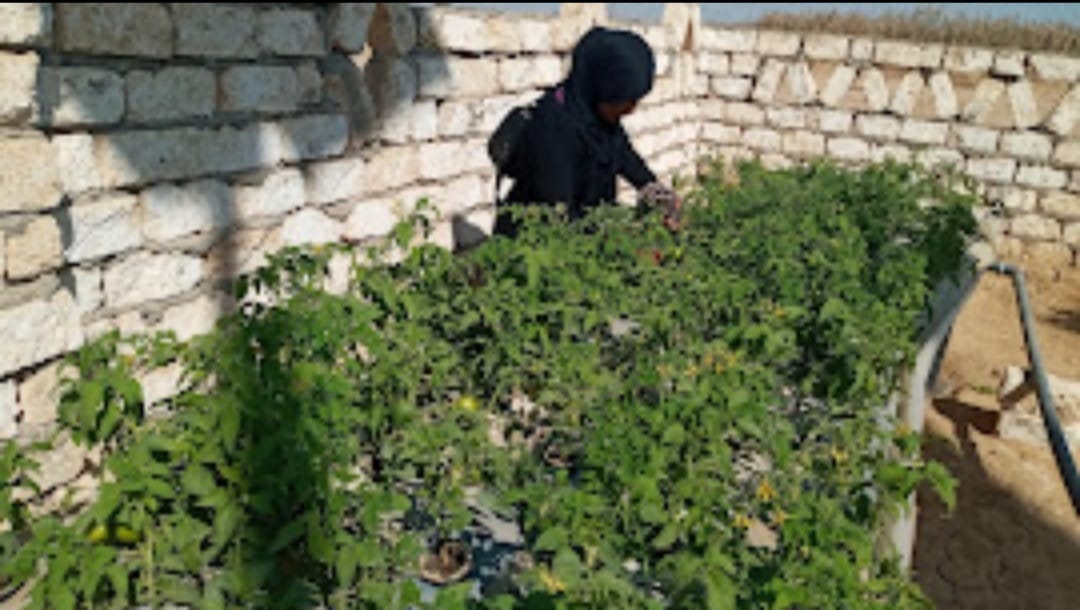Groundbreaking Workshop on AI and Technology-Facilitated Gender-Based Violence at AWiM24
Trending
Saturday May 31, 2025
Trending


Egyptian women have embarked on urban agriculture. Photo/ Dina El Maraghy/AWiM
Cairo
In a changing world ravaged by climate change, providing food remains the largest burden for governments across the world. This difficult equation is further complicated by the emergence of other developments, perhaps the most prominent of which is the outbreak of the Covid-19 pandemic, so it is not surprising that international bodies take the initiative to adopt ambitious strategies to overcome this crisis that threatens human existence. But while the world faces this difficult dilemma, the situation in Egypt remains dire.
In the face of this dire reality, women are coming up with initiatives like “rooftop farming”, where food production is no longer restricted to green fields and agricultural lands that are exposed to waves of drought and floods under the weight of climate change. This new initiative is a game-changer since rooftops are replacing open fields.
Last year, a new idea went viral among Egyptians, to turn rooftops into green spaces; with the environmental goal of purifying the air.
Egyptian women embarked on this idea that quickly turned into an opportunity to provide healthy and nutritious food during the Covid-19 pandemic.
“Our goal was to integrate the society as a whole in the implementation of the idea of rooftop cultivation, the Ministry of Environment has already started training courses for the public, to spread the idea, but we were surprised that women were more interested in the initiative,” says Ahmed Abbas, the head of the afforestation department at the Egyptian Ministry of Environment.
Mr Abbas said that the idea spread on social media among Egyptian women, and the internet pages were flooded with stories of successful experiences of women, who transformed the empty spaces into small farms, where they planted and got a daily supply of watercress, zucchini, capuchin lettuce, red lettuce, celery among other vegetables. They also planted herbs like thyme, mint, marjoram, basil and rosemary.
Cultivation of roofs in the time of the pandemic
The idea of cultivating in the rooftops gained popularity among Egyptian women during the pandemic, out of fear of buying food from outside and contracting the virus.
At a time when the World Health Organisation (WHO) emphasised the importance of healthy nutrition to strengthen the immune system, the Egyptian market lacked fresh produce that is free from pesticides and fertilizers.
Poor families could not buy vegetables on a daily basis, and therefore home farming became inevitable. For women, rooftop cultivation also became a source of income.
“Rooftop cultivation didn’t reach the stage, where the product could be sold in the markets, due to the small size of the spaces, but the fact that it has become a source of income to women, and allowed them to save money that they would have rather spent on food from the market, is in itself a good step,” Mr Abbas stated.

Nahed Yassin, a 40-year-old woman, tells about her experience of growing food and aromatic plants at her home saying: “I moved to live in one of the cities of New Cairo, which lacks fresh crops. At that time, I felt as if I lived in the desert, and here I heard About the “Nashjarha” a government initiative to teach the basics of home farming, so I participated and started implementing it on the ground.”
She added, “I started growing edible herbs such as rosemary, moringa, mint and basil, to use them in making the daily food for my children.”
Ms Nahed who lives at “Al Obour City” confirm that plants purify the air and act as filters against pollutants.
What is remarkable about Ms Nahed’s experience is her ability to grow the papaya fruit – an Asian fruit, that no one risked planting in Egypt, yet, she managed to do it by importing the papaya seeds, and planting them in wet cotton in a plastic container it started to grow, then she moved it to her balcony garden and is waiting to reap its fruits.
The small area that she uses to plant in her home did not prevent her from wanting to grow crops that would provide healthy produce for her children.
Another example of a successful woman, who planted on the rooftops is Amal Al-Orabi, a 50-year-old mother, who found a new passion and started experimenting and learning the basics of agriculture and its application, describing it as a “psychologically satisfying,” as plants and crops “add joy and pleasure to life”.
At her home in Cairo, Al-Orabi, turned an empty space in her balcony into pleasant eyesight, she planted potatoes, bell peppers, tomatoes, radishes, onions, garlic and parsley.
“I was surprised when I harvested the vegetables, they were fresher and smaller than what we buy from the markets and the taste is completely different, at that time I realised that pesticides actually make us lose our sense of taste and slowly destroy our health,” Al-Orabi said.
“I don’t have more space,” she says with sadness, as she wished to grow other crops, saying: “After the spread of Corona Virus, I feared going out to buy food. I now don’t have to go to the market.”
Naira Abdo Sheta, who was among the women selected to participate in the Sustainable Agricultural Investments Project of the Egyptian Ministry of Agriculture, to help her cultivate plants at her home managed to grow food crops in 2 x 6 metres space.
The Egyptian Ministry thought to take advantage of this area and chose about 30 villages in which the women helped grow agricultural products that contributed to saving money, and also provided healthy and clean foods far from pollutants and fertilizers and in the simplest agricultural methods available.
Naira Abdo, from Upper Egypt, planted an area of her house about 2 x 6 meters, she speaks of her experience saying: “At first, I did not have enough knowledge in following up and watering crops, but I learned and would go to the Ministry of Agriculture if I encountered a problem.”
“Now I have enough food to make different meals throughout the day, and there is no longer the need to spend money and be exploited by vendors who raise prices, and I am sure of the quality of what I eat, and I feel great psychological comfort for myself and those who live with me being surrounded by this big green space,” she said.
Laila El-Sisi, a 50-year-old woman, lives in Obour City, which is one of the new cities in the Qalyubia Governorate. She spent her spare time planting her home about 5 years ago and scattered the seeds of various vegetables in a planting unit.
She did not stumble from the beginning. Her farming background helped her with farming and nurturing it.
Laila says, “I felt some disappointment at first because the vegetables did not appear for a long time, but when the watercress leaves began to sprout, I knew that it needed some time, and soon they all came out … then I started picking them and preparing food.”
“I needed animal feeders, which are natural fertilizers for crops, according to what the farmer next to my house explained to me. Here I collected them from different places. I am a tour guide operator, and on my trips are usually to” Wadi El Rayan” in Fayoum, I find them parked in a number of plastic bags, which I carry to Cairo.”
“I feel completely satisfied. I pick my vegetables daily without having to put them in the fridge and I am sure about what I eat, as they do not contain pesticides or pollutants.
“The transit area is almost desert but it did not stop me. I asked and learned that there are some nutritious plants that grow in red sand, so I planted them. I have started to help neighbours learn farming methods and offer them seedlings for free. I also leave some seedlings and plants in front of my house for everyone who wants.”
Laila thought that; “There is no justification to prevent a woman from farming. There are simple ways to cultivate from plastic boxes, basins, etc.
A special experience is from a woman whose age did not stand in the way of her hobby. That is Hoda Salah El-Din, a 54-year-old woman, in Cairo Governorate.
She recycled the wood and plastic in her home and converted them into basins for planting plants, and focused more on growing fruits because of her love for them, and due to the price fluctuations in the markets and the fear of pesticides sprayed on them.
With happiness and a smile on her features, she meets her friends and sits in her balcony garden for a chat.
‘Even if prices go up, I have fresh supply from my garden.”
Alsyda Farghaly is also a beneficiary of this urban agriculture, she gathered a number of women and came up with an organisation called Upper Egypt Development. They came together and started planting some crops, but they found it an expensive venture due to the high prices of seeds so they received assistance from the Ministry of Agriculture to plant tomatoes.
“I assign a room in my house for farming and is successful. When you taste it you feel like you are eating fruit and sometimes we pick it and eat it straight from the farm,” she says.
Dr Magdy Allam, an expert on climate change, says: “Cultivation of everything that contains chlorophyll is great. “That natural compound is capable of absorbing carbon dioxide, the main cause of global warming, and producing oxygen, which contributes to improved respiratory functions.”
Dr Allam believes that the efforts of African countries to imitate the West and our transformation into industrial countries looking for different forms of industry, made us strive to design air purifiers from pollutants so that we could bear the consequences of the progress and development that the West boasts about while planting trees and plants is inexpensive and able to save us from environmental disasters. He encourages rooftop gardening to help purify the air from pollutants.
There is more to this trend of urban agriculture since the rooftops also attract birds and insects thus acting as their natural habitat and can help with pollination thereby promoting a healthy ecosystem.
This article is part of African Women in Media(AWiM)/UNEP Africa Environment Journalism Programme
Would you like to republish this story? Kindly contact janet@africanwomeninmedia.com
We’re not gonna spam. We’ll try at least.

Copyright 2020. African Women In Media
Copyright 2020. African Women In Media
Recent Comments